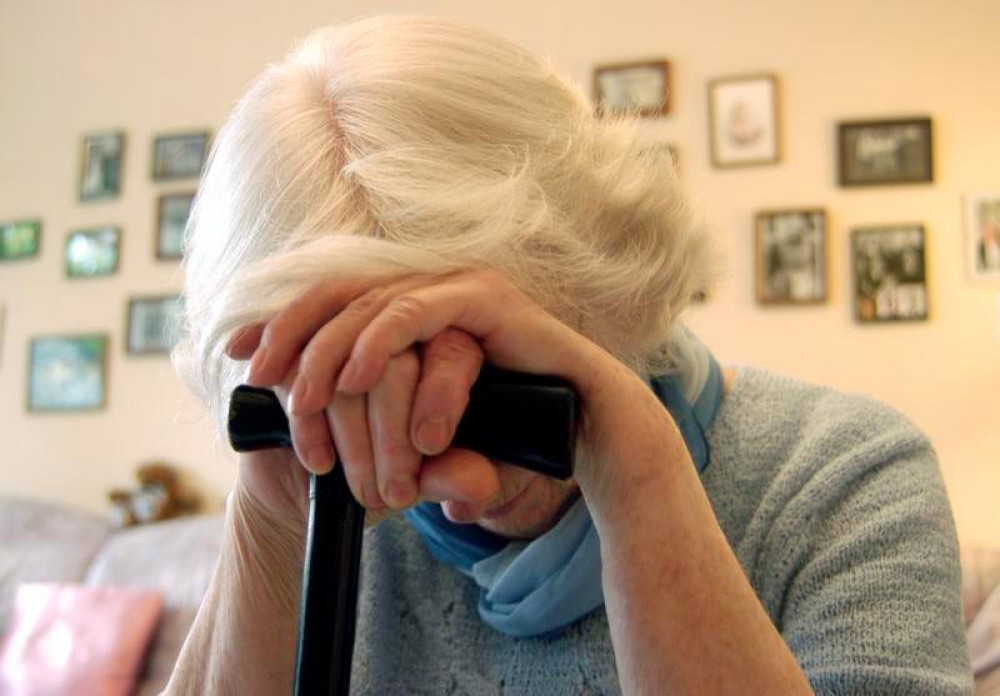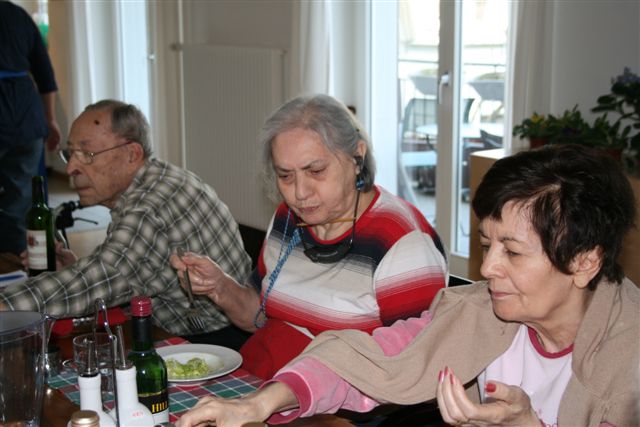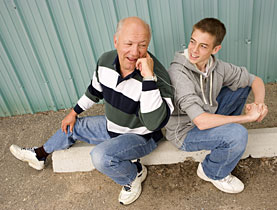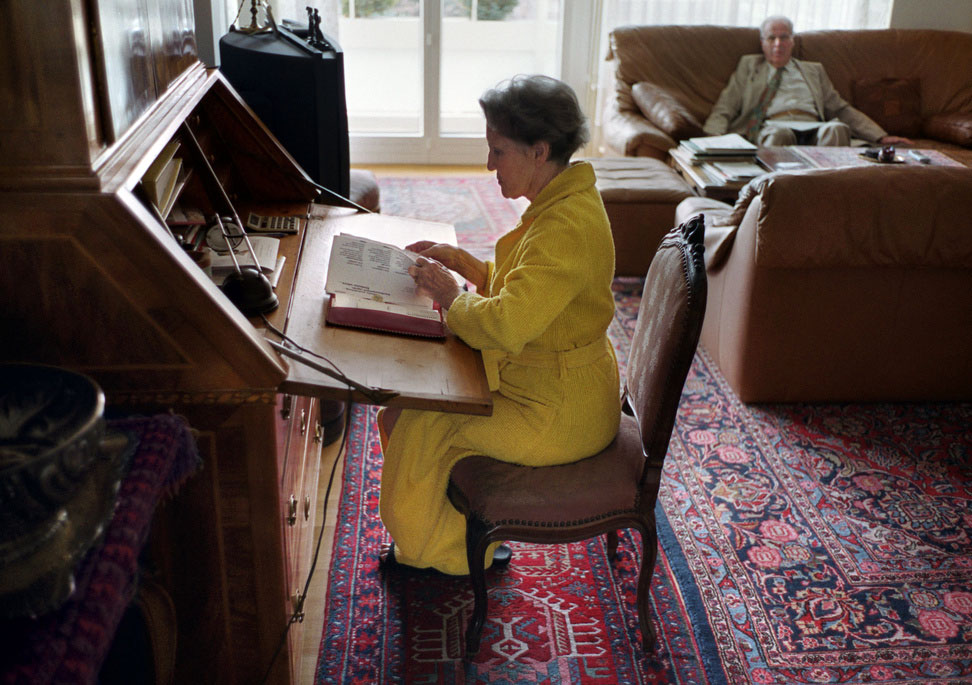Abuse of elderly hidden behind closed doors

Some of the most vulnerable members of society, frail and dependent old people, suffer physical and emotional abuse in their own homes – and the problem is growing.
As life expectancy continues to rise, so do the numbers of people needing daily care and at risk of experiencing dementia. This is a recipe for increased domestic abuse against the elderly, experts say.
Abuse can range from poor care or neglect to physical attacks such as rough handling, hitting and shaking. Elderly people are often victims of psychological violence, such as shouting, bullying and terrorising. Others are robbed or pressured into handing over money.
The support organisation which operates a helpline for elderly victims of violence in German-speaking Switzerland dealt with more than 300 cases last year, a sharp increase on 2009.
Director Bertino Somaini told swissinfo.ch that an estimated three to six per cent of elderly people were victims of some form of violence in their private lives, although the vast majority of cases never come to light.
“We are more likely to hear about problems in residential care settings than in domestic settings because there is a high threshold of inhibition before reporting on a family member,” Somaini said.
Unsafe hands
But what drives their nearest and dearest to such callous behaviour? Sometimes the abuser may have psychological problems of their own or be dependent on drugs or alcohol. In other cases they are simply unable to cope with the on-going strain of caring, which can be compounded by the challenging behaviour of some dementia patients.
“The self-awareness is not necessarily there. We are more often contacted by other family members who feel that something is not right, sometimes by the victim themselves, or by visiting carers who see that there is something wrong in the household,” Somaini explained.
Albert Wettstein is first medical officer for the city of Zurich and any cases of suspected elder abuse are referred to him. He is also responsible for the medical care of 1,600 nursing home residents. He points out that the relationship of dependence complicates cases of violence against the elderly.
“When you have domestic violence with a man beating up his wife, the police can impose a barring order – but if the victim is dependent on daily help, you cannot necessarily take away the helping hand. That’s much more difficult,” he said.
All the more so when moving the victim to a nursing home is the one thing they want to avoid at all costs.
“In some cases they’d rather take some beatings than leave the family home. But when a patient is no longer of sound mind, I have to decide for them.”
Home help
Despite some high-profile cases in residential care, experts agree that more violence occurs in family homes. The helpline estimates that 80 per cent of violence takes place inside the victim’s home.
“Like all violence, it’s much more common in a family setting than in institutions. Because in institutions the staff are hardly ever alone so there is much more social control,” Wettstein said.
Not all suffering in old age is caused by others, he says. There is also the problem of self-neglect, which also tends to go undetected.
Research into the phenomenon of elder abuse in Switzerland has been patchy at best, but in March, the government rejected a motion from parliamentarian Bea Heim calling for a nationwide study and prevention programme.
“The population should be made aware of the problem. Carers and relatives should be systematically trained and the situation should be regularly evaluated,” Heim said in her submission to cabinet.
Back-up
Somaini backed Heim’s call for a national coordination centre for the regional support services and said he was “surprised, to put it mildly” at the government’s response.
“The local branches should be relieved of the burden of administration, publicity, logistics and so on, so they can concentrate on solving the conflict cases. That is their strength,” he said.
However, the cabinet did say that a consultation process was under way with the cantonal authorities to establish whether there was a need for a centralised support office and what form it might take.
The written response to Heim’s motion also noted that the phenomenon of violence against the elderly was complex and pointed out that carers themselves were also sometimes subject to physical and verbal abuse and sexual harassment from their elderly charges.
In terms of practical support, the Swiss organisation which represents old people, Pro Senectute, recently published an extensive advice manual for carers in French and German (see link).
Elder abuse can take various forms such as physical, psychological or emotional, sexual and financial abuse. It can also be the result of intentional or unintentional neglect.
Abusive acts within institutions for the elderly also include physically restraining patients, depriving them of dignity and choice over daily affairs, and providing insufficient care (for example, allowing them to develop pressure sores).
In 2029, the 131,000 baby boomers of 1964 will turn 65. From then on, the Federal Statistics Office is expecting the inevitable increased ageing of the Swiss population.
In all cantons, the percentage of people aged over 65 will rise to over 20% and there will be massive growth of the proportion of the very elderly (80% of over 80-year-olds by 2030).
Alpine and rural regions are particularly affected. Urban cantons such as Zurich, Geneva, Basel and Vaud will benefit from enough migration movement to rebalance their age pyramid.
The ratio between workers and retired people will increase from 2 to 1 (compared with 4-1 now), with manifold socio-economic consequences.

In compliance with the JTI standards
More: SWI swissinfo.ch certified by the Journalism Trust Initiative






You can find an overview of ongoing debates with our journalists here. Please join us!
If you want to start a conversation about a topic raised in this article or want to report factual errors, email us at english@swissinfo.ch.